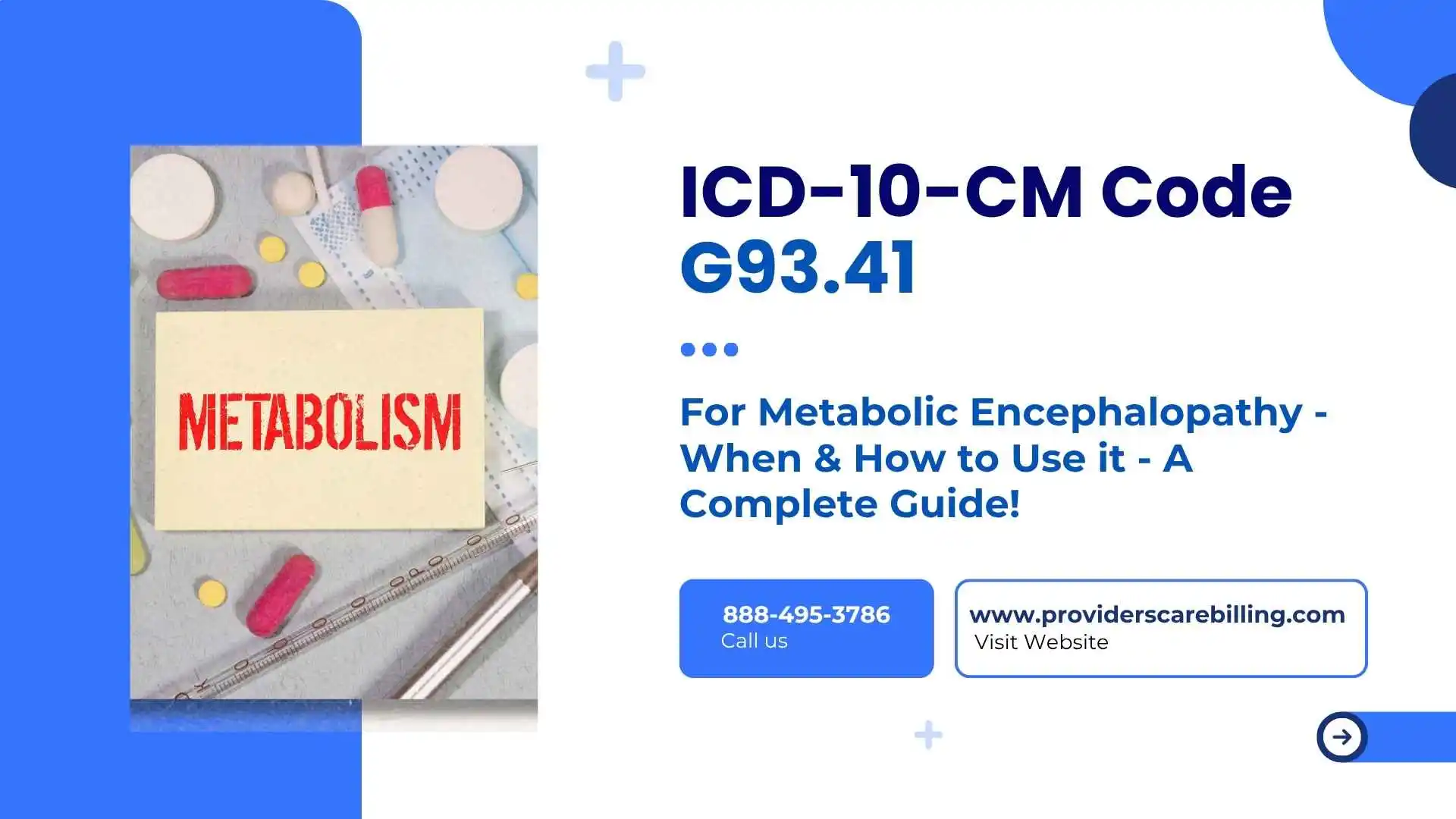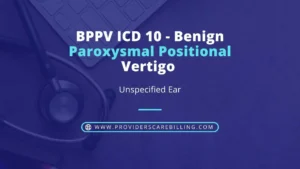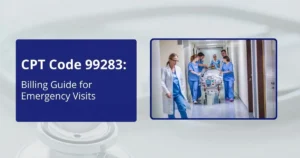The acute metabolic encephalopathy ICD 10, a name that is the main keyphrase, is not merely an SEO, but also a key to not only clinical accuracy but also economic solvency. G93.41 should be accurately assigned to prevent under coding and generate additional revenues, as well as enhance compliance. A practice can establish durable Medical coding services and revenue cycle management services built on best practices in encephalopathy coding through an alliance with an expert Medical billing Company.
Did you know that as many as 30 percent of older patients with urinary tract infections develop metabolic encephalopathy, yet more than half of all of them are coded as being unspecified?
Encephalopathy
The most prevalent diagnosis that coders deal with nowadays is encephalopathy. The diagnosis that the coders are forced to encounter on the most regular basis these days is encephalopathy. It is an all-embracing term, and it refers to brain disease, brain damage, or malfunction. The first symptom observed in healthcare records is altered mental status. Encephalopathy comes in several forms and causes, and in some instances, we may have no idea whether we should code it or not, and in case of need, which code is to be used.
For Example
Consider a patient is a 65-year-old man with a medical history of type 2 diabetes who is now hospitalized due to the presence of severe kidney infection (pyelonephritis). He soon becomes disoriented, perplexed, and lacks concentration. His mental condition is variable, and he has certain memory loss. The physician believes that encephalopathy G93.41 was caused by the metabolic imbalance arising from the infection.
What Is Acute Metabolic Encephalopathy?
Acute brain malfunction brought about by systemic imbalances is referred to as metabolic encephalopathy. Such imbalances may include electrolyte imbalances, infections, organ failures, or toxins. The common causes are sepsis, UTI, renal or hepatic failure, derangement of electrolyte derangement, and hypoglycemia.
Key features include:
- Disorientation, delirium, or impaired consciousness suddenly overtakes.
- Labs: derangements, e.g., high BUN/Cr, /low sodium, low blood sugar.
- Ability to be reversed when the problem behind it is addressed.
Which are the codes of ICD that I can use for metabolic encephalopathy?
The most common codes for metabolic encephalopathy are as follows:
G92—Toxic Encephalopathy
G92 Index to exposure to neurotoxic substance, poisoning or OD is indexed in ICD-10-CM as a result of exposure to items that we commonly Treatment is based on the symptom or the cause. In the majority of cases, this kind of encephalopathy cannot be cured.
G93.41—Metabolic Encephalopathy
According to ICD-10-CM G93.41, it can also be classified as toxic and drug-induced, lacking glucose, metabolic agent, or electrolyte imbalance. An electrolyte imbalance is caused by a significant number of conditions that include dehydration, trauma, renal failure, and infection. It is treated in relation to the cause or the symptoms, and treatment is most likely reversible after the metabolic problem has been rectified.
G93.1—Anoxic Encephalopathy
Lacking oxygen brain damage, and termed hypoxic encephalopathy, is indexed in ICD-10-CM to G93.1. This type is, at times, permanent and irreversible, given the duration of time with no oxygen reaching the brain cells. This may be due to cardiac arrest, seizures, or simply as long as there is a deficiency of breathing, like in patients with lung disease. It may also arise in the unborn fetus if the placental supply fails.
Hepatic Encephalopathy
In case the liver is either failing or sick, the liver is unable to eliminate the toxin into the bloodstream, and it will be stored in the brain. Hepatic encephalopathy diagnosis does not mean that one is in a state of coma. This would be possible when it is accompanied by a coma, so that the MD would have to record this. It is a pending condition, and when well-treated, and when you stick to the treatment. Among other medical conditions, this happens to people who have cirrhosis, acute liver failure, chronic liver disease, and hepatitis.
Hypertensive Encephalopathy
In cases where the amount of high blood pressure is severe, it leads to I67.4, which falls under the ICD-10-CM. The effects are reversible in most situations. The management aims at reducing high blood pressure.
G93.40–Acute and/or unspecified Encephalopathy
G93.40 of ICD-10-CM either represents a disease or direct traumatic brain damage. In most instances, the cause of the same is known, though the physician has not mentioned it to the coders, and no other specific code can be utilized.
Other Encephalopathy
Other encephalopathy is coded using the ICD-10-CM G93.49. Other encephalopathy is otherwise stated when the documentation is available to justify that the encephalopathy is secondary to a specific etiology/disease, and one could not find an entry in the ICD-10-CM Alphabetic Index under that etiology/disease.
Cerebral infarction that has led to encephalopathy would be coded as G93.49 because cerebral infarct, which has resulted in encephalopathy, cannot be specially coded.
However, the sepsis encephalopathy will be coded as G93.41 because the septic encephalopathy has been documented.
Accurate coding is key for conditions like metabolic encephalopathy (G93.41) and abnormal mammogram findings (R92.8). Both require clear documentation for proper care and reimbursement.
Get prepared to do away with undercoding of encephalopathy G93.41.
Call Providers Care Billing LLC to take advantage of specialized Medical billing coding services, credentialing services, and complete revenue cycle solutions designed exclusively to suit your practice.
📞 Call Now: 888-495-3786
📧 Email: Info@providerscarebilling.com
Conclusion
Acute metabolic encephalopathy (G93.41) could only be correctly diagnosed if the etiology, clinical signs, laboratory results, and acute changes are all well described. Code capture is improved by supporting toxic encephalopathy (G92.8) wherever it is applicable. Such precision becomes the stimulus to regulatory compliance, reimbursement, and clinical quality. Outsourcing strong Medical Billing and Coding Services or as an entire Revenue Cycle Management Services/Company, such as Providers Care Billing LLC, is the only way one can maintain a successful practice.
FAQS
Q: Is it possible to have G93.41 as the principal diagnosis?
Yes, when the encephalopathy (G93.41) itself is the cause of admission or leads towards a certain treatment (e.g., neuro checks, head CT).




